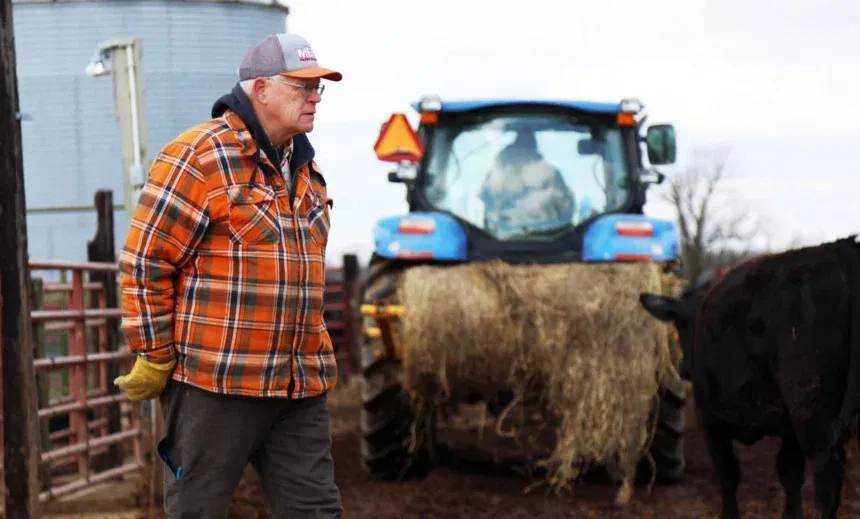Faced with painful tariffs, Buchanan County farmers hope for long-term benefits

ST. JOSEPH, Mo. (News-Press NOW) — Local farmers are bracing for the trickle-down effects of a wave of tariffs impacting ag products including fertilizer, farm equipment and major commodities.
A blanket 25% tariff on goods from Canada and China — and sweeping tariffs in response — are adding to uncertainty as many face higher input costs and lower commodity prices says Buchanan County Farm Bureau President Tim Gach.
“That makes it really difficult whenever a tariff comes along and starts raising the price of something like potash (fertilizer) or anything. Steel, you’re talking about equipment,” said Gach, who manages a farm of several hundred acres. “Knowing what we know from the first administration’s go around, hopefully, farmers prepared and braced for that a little bit better this time.”
Gach is one of the countless farmers who depend on imported potash as a natural fertilizer, a vital product that eats up the bulk of expenses for most ag operations, including his.
With a staggering 85% of potash being shipped from neighboring Canada, many farmers are grappling with price increases as high as 25% with planting season fast approaching.
“In this case, we dodged a bullet a little bit ... Last fall, we went and locked in prices for our nitrogen, phosphorus and potash,” Gach said. “But farmers do things differently. Some of them are still in the process of purchasing and are starting to see increases in the product.”
On top of fertilizer, the bottom lines of farmers are set to take an additional hit with No. 3 trade partner China imposing a 15% tariff on imports of U.S. chicken, wheat, corn and cotton and 10% tariffs on soybeans and dairy products.
Farmers are keeping a close eye on upcoming USDA financial reports to monitor the impact, which won’t be felt until the coming weeks with goods shipped before Monday and imported by April 12 not subject to the new tariffs.
“If they stop taking product, then all of a sudden then our prices stay suppressed or go down even farther. We’ll see different prices in corn. We’ll see probably lower different prices in soybeans,” said Gach, who grows corn and soybeans. “China is our number three importer. We export a lot of soybeans to China.”
Overall, he said farmers will have to find creative ways to reduce debt to help withstand the blow of higher costs and payments, like holding off on larger equipment purchases.
In the eyes of Gach and other farmers like Reid Atha, part-owner of Atha Bros Agricultural Services, challenges posed by tariffs are far from uncharted territory for many resourceful farmers who navigated President Donald Trump’s first term in office.
“Short term I think it’s going to hurt. But I think long term, I think it’s going to benefit all the farmers down the road,” Atha said. “Trump did this in 2018 and ‘19, basically a short-term loss, but he ended up paying back, you know, basically our losses.”
While uncertainty remains, Gach and Atha are hopeful that tariffs will produce long-term benefits by leveling the playing field for U.S. ag products on the global trade market.
With an average external tariff of 3.3% in 2023 according to the World Trade Organization, the U.S. has long had a lower rate compared with its most prominent trade partners like China at 7.5%, Mexico at 6.8% and the EU at 5%. Other countries like India and South Korea impose even higher rates between 12% and 17%.
“It’s kind of a double-edged sword. Something has to get done. Right? We can’t just keep getting basically steamrolled from a tariff standpoint,” Atha said. “Farmers are losing money, you know, per acre. So, no matter what you do. So, you know, we’ve already kind of phased into that, that transition.”




